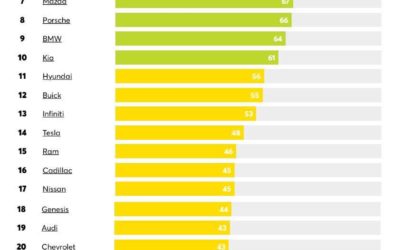The US diesel market is currently facing turbulent times, with rising diesel fuel prices and an impending crisis that threatens to disrupt various industries, including car shipping. In this article, we will delve into the factors driving the surge in diesel prices and discuss the potential implications for the car shipping industry.
The Diesel Price Surge:
In recent years, diesel fuel prices in the United States have been on a relentless upward trajectory, causing concern among businesses and consumers alike. Several key factors contribute to this price surge:
- Global Oil Market Dynamics: Diesel prices are closely linked to global oil market trends. Events like geopolitical tensions, supply disruptions, and fluctuations in crude oil prices impact the cost of diesel at the pump.
- Environmental Regulations: Stricter environmental regulations have led to the production of cleaner-burning, low-sulfur diesel fuels, which are more expensive to refine. Compliance with these regulations has driven up production costs and subsequently pushed prices higher.
- Supply Chain Disruptions: Supply chain disruptions, such as those experienced during the COVID-19 pandemic, have affected the production and distribution of diesel fuel, further straining supply and demand dynamics.
- Increased Demand: Rising demand for diesel fuel, particularly in the transportation and construction sectors, has placed additional pressure on prices.
The Implications for Car Shipping:
The car shipping industry relies heavily on diesel-powered trucks and equipment for its operations. As diesel prices continue to climb, the impact on car shipping companies can be significant:
- Operational Costs: Car shipping companies, which often operate on thin profit margins, face higher operational costs due to increased diesel prices. This can lead to reduced profitability or the need to pass on the cost to customers through higher shipping rates.
- Supply Chain Vulnerability: The car shipping industry is part of a complex logistics network. Any disruption in the diesel supply chain can result in delays and logistical challenges that affect the timely delivery of vehicles.
- Sustainability Concerns: As diesel prices rise and environmental awareness grows, car shipping companies may face pressure to adopt more sustainable transportation solutions, such as electric or natural gas-powered vehicles. This transition can come with its own set of challenges and costs.
Navigating the Crisis:
To navigate the looming diesel crisis and its impact on car shipping, industry players should consider several strategies:
- Fuel Efficiency: Investing in fuel-efficient technologies and practices can help car shipping companies reduce their diesel consumption and mitigate cost increases.
- Alternative Fuels: Exploring alternative fuels, such as natural gas or biodiesel, can provide more cost-effective and sustainable options in the long run.
- Diversification: Diversifying the fleet with a mix of diesel and alternative-fuel vehicles can offer flexibility and reduce dependency on diesel.
- Supply Chain Resilience: Strengthening supply chain resilience by ensuring reliable access to diesel fuel and exploring contingency plans is crucial to maintaining business continuity.
The US diesel market is at a critical juncture, with rising prices and supply chain challenges threatening the car shipping industry and other sectors that rely on diesel-powered transportation. To weather this storm, car shipping companies must adapt, innovate, and prioritize sustainability to ensure their long-term success in a rapidly changing landscape. By doing so, they can not only navigate the crisis but also contribute to a more sustainable and resilient future for the industry.












